Features > Property News & Insights > Market updates
Interest rates: RBA keeps its finger on the “pause” button
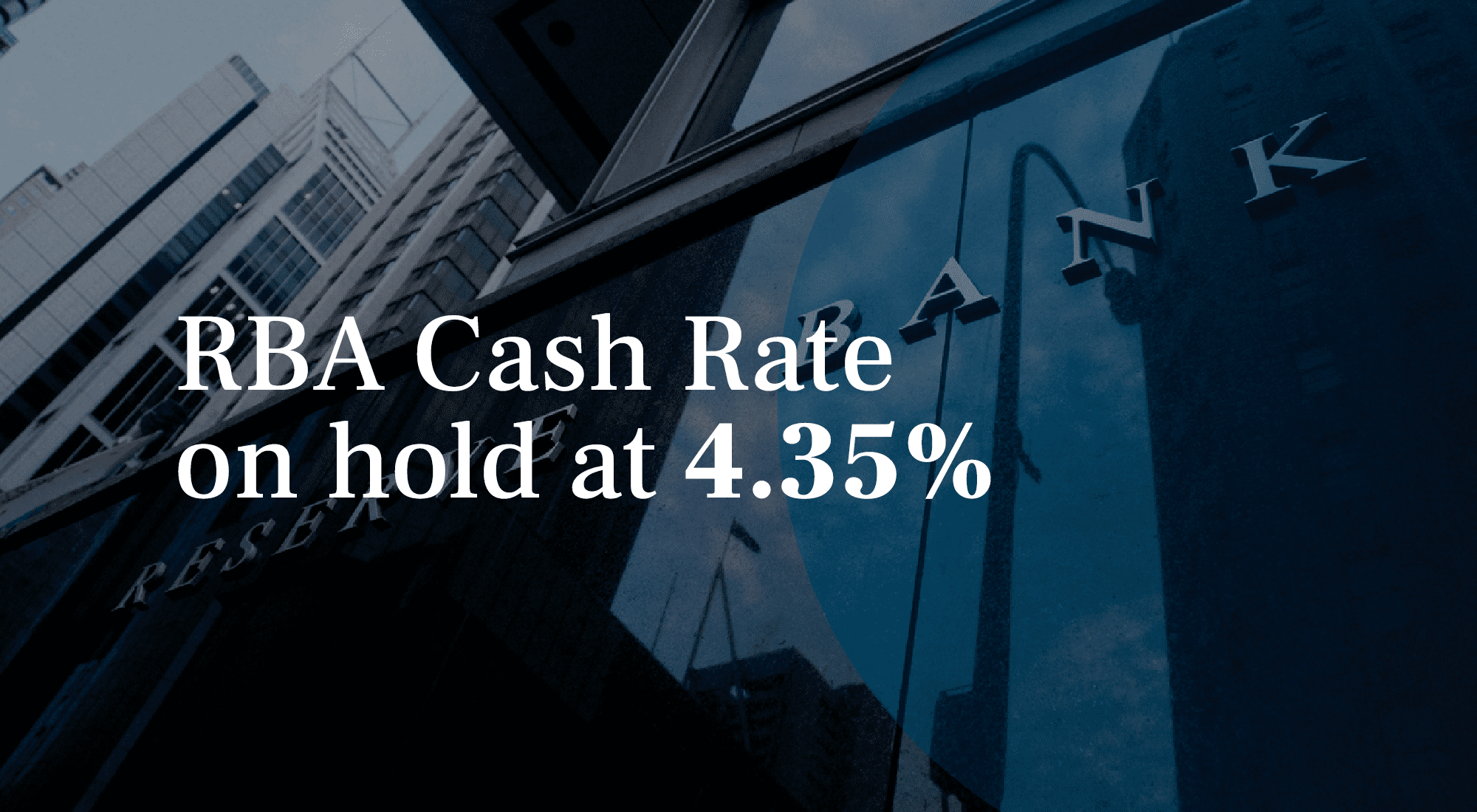
KEY POINTS
- The board of the Reserve Bank of Australia has decided to keep the cash rate on hold at 4.35%
- Rates have been steady at a 12-year high since November last year
- The RBA says Australia’s economic outlook remains uncertain, and recent “mixed” data has demonstrated returning inflation to its target band of 2-3% is unlikely to be “smooth”
- For the first time, the central bank has also expressed some concern that big spending on federal and state budgets may have an impact on inflation
As expected, the Reserve Bank of Australia (RBA) has decided to keep official interest rates on hold at its June monetary policy meeting.
It’s the 5th straight meeting where the RBA board has decided to keep the cash rate—already at a 12-year high of 4.35%—steady.
In what economists described as a “hawkish hold,” the statement that accompanied the cash rate decision toughened up some of the language about the resolve of the RBA board to act (i.e., put interest rates up again) if it believed inflation wasn’t returning to target.
Again, the board said inflation was too high, and although it was easing, it “has been doing so more slowly than previously expected.”
For the first time, the board also expressed some concern, albeit mild, about the inflationary aspects of big spending state and federal government budgets, saying that “recent budget outcomes may also have an impact on demand, although federal and state energy rebates will temporarily reduce headline inflation.”
This “suggests the RBA may have become concerned about the amount of fiscal easing across federal and state budgets,” says ANZ Head of Economics Adam Boyton.
Adam Boyton thinks the “language in this post-meeting statement suggests that the RBA Board is in no hurry to cut rates,” but ANZ still thinks the next interest rate move by the RBA will be down, not up.
Recently, ANZ became the first of the “Big 4” banks to push back its expectation of when interest rate cuts might begin, from November this year to February 2025.
Once again, it appears the RBA wants to see more economic data before its next rate move, saying the “outlook remains uncertain and recent data have demonstrated that the process of returning inflation to target is unlikely to be smooth.”
It’s thought that the June quarter Consumer Price Index data from the Australian Bureau of Statistics—which will be released on the 31st of July—is now the key piece of data the RBA is waiting for to decide whether its campaign of 13 straight interest rate hikes has been enough to return Australia’s runaway inflation rate back to the bank’s 2-3% target band.
The RBA will consider that crucial piece of data at its next board meeting—on the 5&6th of August.
Struggling with a mortgage?
The news that interest rates will remain at a 12-year high and that the cash rate is likely to stay “higher for longer” is obviously a big blow to households with a variable mortgage.
So, with the cost-of-living crisis continuing and interest rates not coming down anytime soon, now's the time to ask your bank or mortgage broker for a better interest rate deal.
Most banks aren't offering cashback to make you switch lenders any more, but they are prepared to substantially discount retail interest rates to new customers and some existing ones.
The advice from Sally Tindall, Research Director at ratecity.com.au, is blunt.
“If you’ve got a mortgage, don’t even daydream about a rate cut, but instead keep your head down and your home loan repayments up.”
“While the RBA believes the cash rate could be at the peak, it won’t rule out the possibility of another hike and nor should borrowers,” she warns.
Sally Tindall says there’s some modest relief on the horizon with the tax cuts due to kick in from the 1st of July.
“The stage three tax cuts will help some families get their budgets out of the red, but for those that are already managing to balance the books, spend some time thinking about how you might be able to make the most of this extra cash.”
Her advice is to plough the extra cash into your mortgage.
It’s also worth noting here that fierce competition for the mortgage business means banks have not passed on the full impact of the 13 interest rate increases since May 2022.
Since then, the cash rate has gone from the emergency level of 0.1% to 4.35%—an increase of 4.25%.
However, on average, loans for owner-occupiers have only gone up 3.86% in that time, and even less for investors—3.82%.
If you are paying an extra 4.25% or more on your home loan than you were two years ago, you are really getting a bad deal.
Home prices
PropTrack’s latest Home Price Index showed national dwelling prices hit a new record in June, despite high interest rates.
PropTrack’s Director of Economic Research, Cameron Kusher, says, “Housing demand remains strong due to population growth, tight rental markets, resilient labour market conditions, and home equity gains.”
“Coupled with tax cuts on July 1, which will support real incomes and household spending, we expect that property prices will lift further this year.”
“Building activity is at decade-low levels, exacerbated by a lack of new construction, which is creating a chronic shortage of housing.”
“The imbalance between housing supply and demand has offset the higher interest rate environment and deterioration in affordability, fuelling home prices and rents,” Mr Kusher says.
Economists at AMP recently estimated that we are already 200,000 to 300,000 thousand dwellings short in this country for the population we already have.
And while migration is slowing, there are still hundreds of permanent and temporary migrants coming into the country each and every day.
Even if we improve on what is the lowest rate of home building in years, starting from that far behind only makes the imbalance between housing supply and demand worse.
So, expect home prices and rents to keep rising even more.
Stay Up to Date
with the Latest Australian Property News, Insights & Education.




.png?width=292&height=292&name=Copy%20Link%20(1).png)
 SIGN UP FOR FREE NEWSLETTER
SIGN UP FOR FREE NEWSLETTER
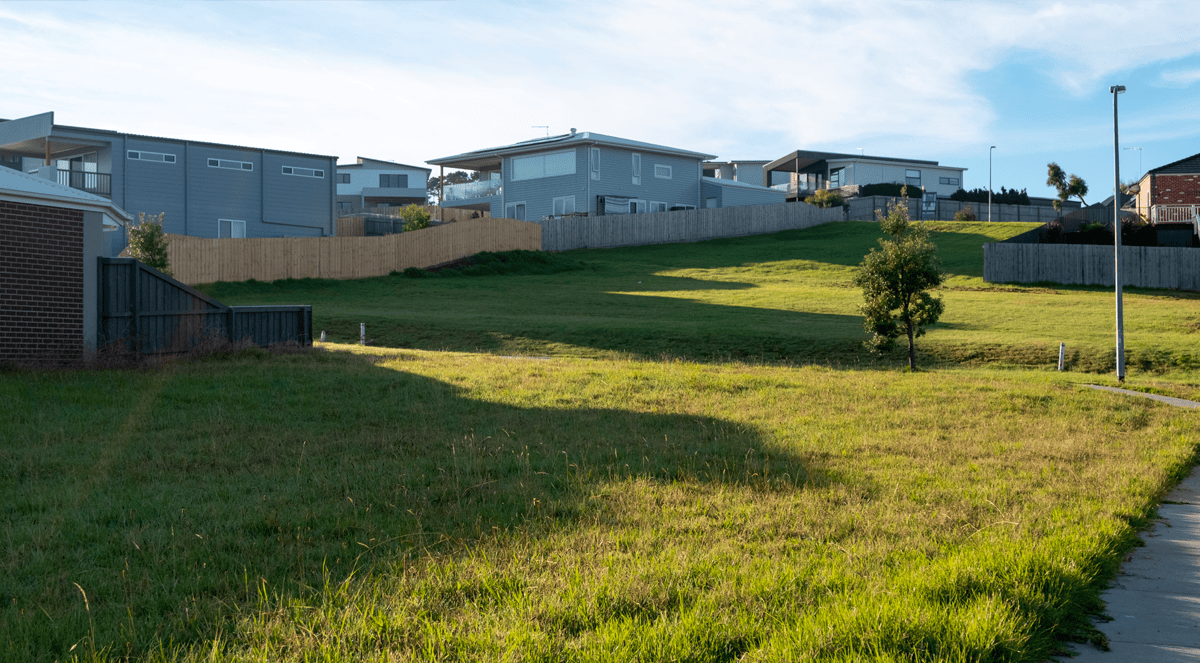
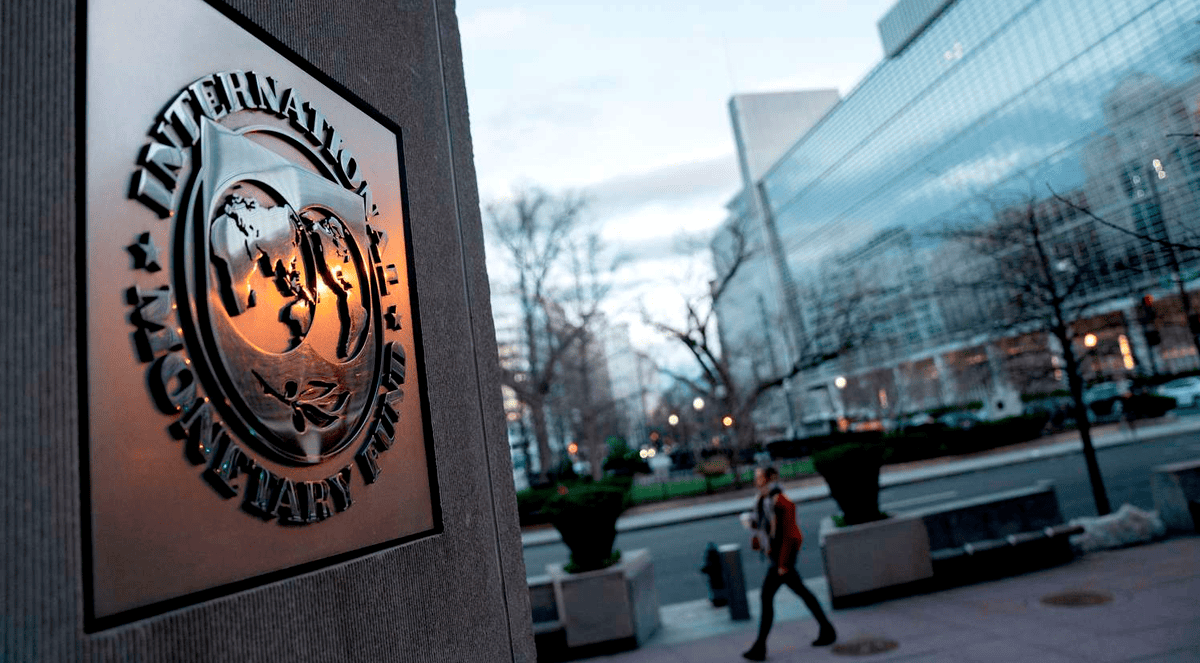
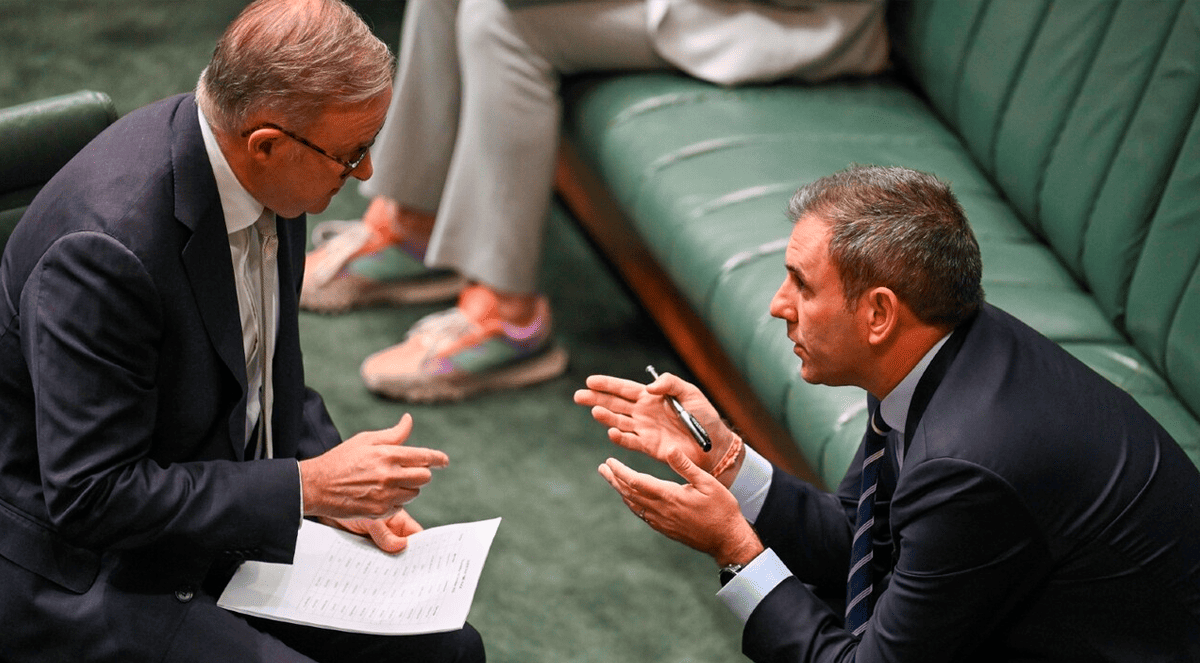

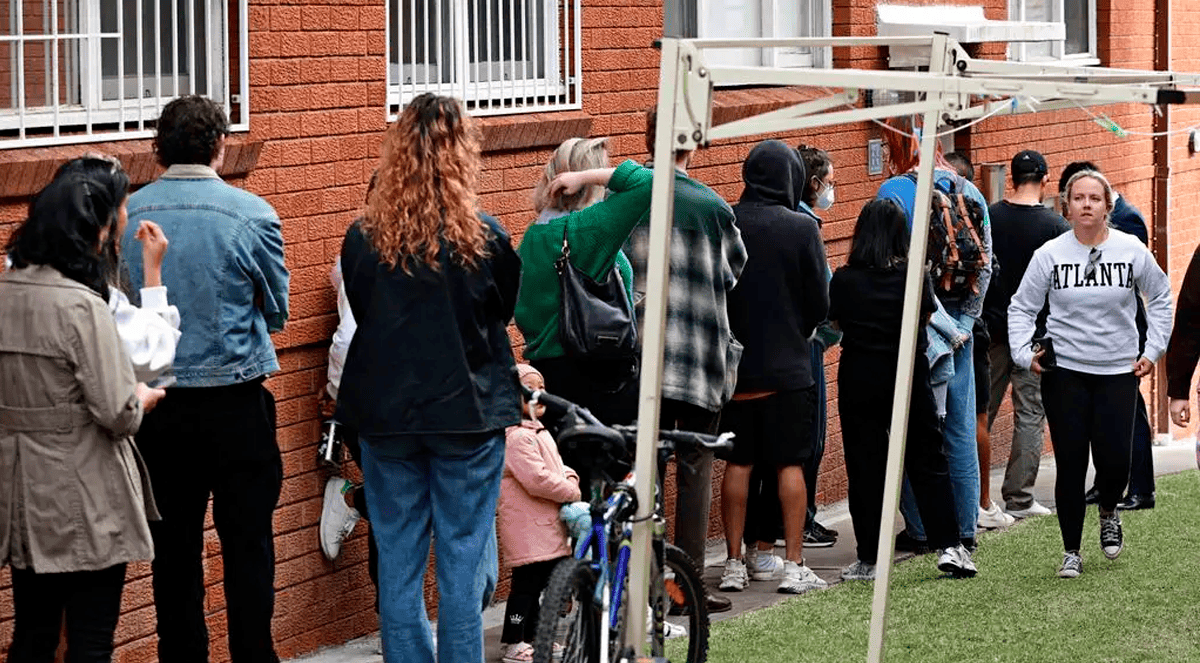


%20Scott%20Kuru%20DPU%20145.jpg?width=1920&height=1080&name=Senate%20Inquiry%20Forced%20the%20RBA%20to%20Admit%20the%20Housing%20Crisis%20Will%20Never%20Be%20Fixed%20(It%20Was%20All%20a%20Lie)%20Scott%20Kuru%20DPU%20145.jpg)



%20Scott%20Kuru%20DPU%20141.jpg?width=1920&height=1080&name=The%20Senate%20Just%20Exposed%20Australias%20Biggest%20$80%20Billion%20Housing%20Fraud%20(Inquiry%20Launched)%20Scott%20Kuru%20DPU%20141.jpg)




%20Scott%20Kuru%20DPU136.jpg?width=1920&height=1080&name=Aussies%20Just%20Got%20Hit%20With%20Double%20Taxes%20on%20Everything%20(This%20Has%20Gone%20Too%20Far)%20Scott%20Kuru%20DPU136.jpg)


%20Scott%20Kuru%20DPU%20133.jpg?width=1920&height=1080&name=JUST%20IN%20Something%20Major%20Just%20Flipped%20Australia%E2%80%99s%20Property%20Market%20for%202026%20(No%20One%20Saw%20This%20Coming)%20Scott%20Kuru%20DPU%20133.jpg)


.jpg?width=1920&height=1080&name=Rental%20Prices%20At%20Record%20Highs%20And%20Vacancy%20Rates%20At%20All%20Time%20Lows%20(New%20Data%20Reveals).jpg)
%20%20DPU%20EP%2014.jpg?width=1920&height=1080&name=Investors%20Shutting%20Out%20First%20Home%20Buyers%20(Investors%20At%20Record%20Highs)%20%20DPU%20EP%2014.jpg)

.jpg?width=1920&height=1080&name=Darwins%20Property%20Market%20Boom%20or%20Dangerous%20Gamble%20(REVEALED).jpg)

.jpg?width=1920&height=1080&name=The%20RBA%E2%80%99s%20Rate%20Cut%20Could%20Explode%20House%20Prices%20(Here%E2%80%99s%20Why).jpg)








.jpg?width=1920&height=1080&name=Warning%2c%20You%20Might%20Be%20Facing%20Higher%20Taxes%20Soon%20(1).jpg)




.png?width=1920&height=1080&name=Rate%20Drops%20Signal%20BIGGEST%20Property%20Boom%20in%20DECADES%20(1).png)

.jpg?width=1920&height=1080&name=Labor%20vs%20Liberal%20These%20Housing%20Policies%20Could%20Change%20the%20Property%20Market%20Forever%20(1).jpg)
.jpg?width=1920&height=1080&name=QLD%20Slashes%20Stamp%20Duty%20Big%20News%20for%20Investors%20%26%20Home%20Buyers%20(1).jpg)
.jpg?width=1920&height=1080&name=Trump%20Just%20Slapped%20Tariffs%20%E2%80%93%20Here%E2%80%99s%20What%20It%20Means%20for%20Australia%20(1).jpg)
.jpg?width=1920&height=1080&name=Federal%20Budget%202025%20More%20Debt%2c%20No%20Housing%20%E2%80%93%20Here%E2%80%99s%20What%20You%20Need%20to%20Know%20(1).jpg)
.jpg?width=1920&height=1080&name=Australias%20Housing%20Crisis%20is%20about%20to%20get%20MUCH%20Worse%20(New%20Data%20Warns).jpg)
%20(1).jpg?width=1920&height=1080&name=Australias%20RENTAL%20CRISIS%20Hits%20ROCK%20BOTTOM!%20(2025%20Update)%20(1).jpg)
%20(1).png?width=1920&height=1080&name=Is%20Adelaide%20Still%20a%20Good%20Property%20Investment%20(2025%20UPDATE)%20(1).png)
.jpg?width=1920&height=1080&name=RBA%20Shocks%20with%20Rate%20Cuts!%20What%E2%80%99s%20Next%20for%20Property%20Investors%20(1).jpg)
%20(1).jpg?width=1920&height=1080&name=I%20Predict%20The%20Feb%20Rate%20Cut%20(My%20Price%20Growth%20Prediction)%20(1).jpg)
.png?width=1920&height=1080&name=Why%20Property%20Prices%20Will%20Rise%20in%202025%20Market%20Predictions%20(1).png)
.jpg?width=1920&height=1080&name=Why%20Investors%20Are%20Choosing%20Apartments%20Over%20Houses%202%20(1).jpg)
.jpg?width=1920&height=1080&name=Why%20Rate%20Cuts%20Will%20Trigger%20A%20Property%20Boom%20(1).jpg)
.jpg?width=1920&height=1080&name=Retire%20On%202Million%20With%20One%20Property%20(Using%20SMSF).jpg)
.jpg?width=1920&height=1080&name=4%20Reasons%20Why%20You%20Should%20Invest%20in%20Melbourne%20Now%20(1).jpg)
%20(1).jpg?width=1920&height=1080&name=Old%20Property%20vs%20New%20Property%20(Facts%20and%20Figures%20Revealed)%20(1).jpg)
%20(1).jpg?width=1920&height=1080&name=Will%20The%20New%20QLD%20Govt%20Create%20a%20Property%20Boom%20or%20Bust%20(My%20Prediction)%20(1).jpg)
%20Scott%20Kuru%20(1).jpg?width=1920&height=1080&name=Inflation%20Hits%20Three-Year%20Low%20(Will%20RBA%20Cut%20Rates%20Soon)%20Scott%20Kuru%20(1).jpg)
.jpg?width=1920&height=1080&name=How%20to%20Buy%20Investment%20Property%20Through%20SMSF_%20The%20Ultimate%20Guide%20(1).jpg)
.jpg?width=1920&height=1080&name=Victoria%20Slashes%20Stamp%20Duty%20Melbourne%20Set%20to%20Boom%20Scott%20Kuru%20(1).jpg)
.png?width=1571&height=861&name=Are%20Foreign%20Buyers%20Really%20Driving%20Up%20Australian%20Property%20Prices%20(1).png)
.jpg?width=1920&height=1080&name=The%20Single%20Factor%20That%20Predicts%20Property%20Growth%20Regions%20(1).jpg)
%20Scott%20Kuru%20(1).jpg?width=1920&height=1080&name=My%20Prediction%20On%20Rates%20%26%20Negative%20Gearing%20(Market%20Crash)%20Scott%20Kuru%20(1).jpg)

-1.png?width=1920&height=1080&name=Major%20Banks%20Cut%20Rates%20Will%20RBA%20Follow%20Suit%20(Sept%20Rate%20Update)-1.png)
%20Scott%20Kuru-1.png?width=1920&height=1080&name=Rate%20Cut%20Coming%20What%20New%20Zealands%20Move%20Means%20for%20Australia%20(Sept%20Prediction)%20Scott%20Kuru-1.png)
%20(1).jpg?width=1920&height=1080&name=Buy%20when%20the%20interest%20rates%20are%20high!%20(Why%20you%20must%20buy%20now!)%20(1).jpg)
.jpg?width=1920&height=1080&name=Carms_Revised%20Taxes%20Due%20Aug%209%20YT%20Thumbnail02%20(1).jpg)
.jpg?width=1920&height=1080&name=Carms_Too%20Little%20Too%20Late%20Aug%207%20YT%20Thumbnail01%20(1).jpg)









.jpg?width=1920&height=1080&name=Carms_Rate%20Drop%20In%20July%20Jun%2010%20YT%20Thumbnail02%20(1).jpg)
.jpg?width=1920&height=1080&name=Carms_Own%20a%20Property%20V6%20Jun%205_YT%20Thumbnail%20(1).jpg)









.png?width=1920&height=1080&name=Artboard%201%20(3).png)






.jpg?width=1920&height=1080&name=YT%20thumbnail%20%20(1).jpg)

